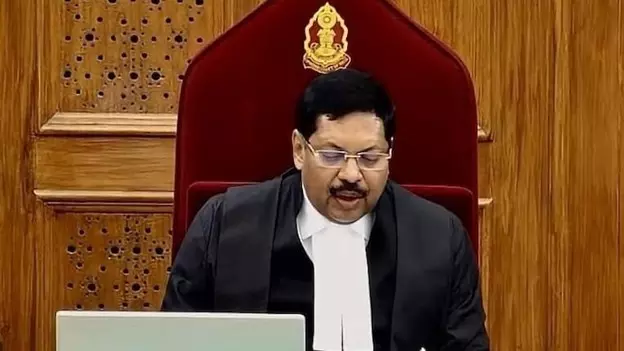
Presidential reference | Setting fixed timelines for Bill assent poses challenges: SC
To a plea to fix timelines for assent to bills, an apex court bench cited constitutional constraints and case-specific complexities; arguments to continue today

It was only an oral observation by the Supreme Court while hearing arguments in support of imposition of timelines on Governors and the President but one that would have made Opposition-ruled states skip a beat.
During the sixth hearing on the Presidential Reference, senior advocates Abhishek Manu Singhvi and Kapil Sibal, appearing for the states of Tamil Nadu and West Bengal respectively, made spirited arguments favouring the imposition of timelines on Governors and the President to decide on Bills sent to them for assent by assemblies or Parliament.
Not 'royalty in republic'
Two of the five judges (Chief Justice of India BR Gavai and Justice PS Narasimha) on the Constitution Bench hearing the Presidential Reference on Tuesday (September 2) noted that fixing such timelines could be a “difficult proposition” and asked if doing so would require an amendment to the Constitution.
Also read: SC issues notice on Presidential reference for bill assent timelines
The pointed observations and queries by the judges came as Singhvi and Sibal argued that the Constitution requires the Governor to “act with immediacy” once a Bill is referred by the legislature and that they cannot act as an “all-pervading super Constitutional authority” nor “assume to be royalty in a republic” by withholding assent to Bills indefinitely.
While Sibal asserted that “working of the Constitution is a collaborative and not a combative exercise among Constitutional authorities” and that the discretion allowed to the Governor under Article 200 for assenting to, withholding or referring a Bill to the President is to be employed “within the contours of the Constitution”, Singhvi argued the power of Governors and the President are “restricted by the options and procedure under Articles 200 and 201” and, as such, neither constitutional authority enjoys any “high plenary powers which oust judicial review”.
Question of timelines
Though CJI Gavai and Narasimha (and also Justice Vikram Nath) agreed with the contention that only the legislature and not Governors or the President have powers under the Constitution to “kill a Bill” and noted that Governors “cannot sit over the wisdom of the legislature indefinitely”, both also quizzed Singhvi and Sibal on whether a “broad brushstroke of a general timeline” could be imposed on the constitutional authorities “in all cases”.
“Can we lay down a straightjacket formula under Article 142 for exercising of the power of the President and the Governor?” the CJI asked. In the same vein, noting that the imposition of such timelines would require an amendment to Articles 200 and 201 of the Constitution, Justice Narasimha wondered, “what happens if the timeline is not followed?”
“We lay down the timeline… then what? If it is an administrative order which for non-compliance becomes invalid, what is to be done… ‘as soon as possible’ is a Constitutional norm but when matters go to the Court with somebody saying large time has already been taken, then it becomes an individual lis (pending case). There, the Court may exercise any kind of power. Even 142 power (Article 142, which grants the apex court plenary powers to ensure complete justice). But to say that we will set a time limit is a difficult proposition,” Justice Nath said.
Also read: A presidential reference too low
Justice Nath also enquired if the proposition under Article 200, which requires the Governor to decide on a Bill “as soon as possible” was “not good enough”, to which Singhvi responded promptly, “it is proven that it is not good enough”.
Both CJI Gavai and Justice Nath prodded the counsel for Tamil Nadu and Bengal to weigh in on whether fixing timelines should not be decided based on “individual cases” moved before the court “after considering the peculiar facts and circumstances of each case” instead to imposing general timelines for all Bills since “there could be different exigencies and considerations warranting a different timeline for different enactments”.
The hearing concluded with the CJI reiterating whether Article 142 gave the court powers to impose general timelines on Governors and the President.
Arguments by counsel for various Opposition-ruled states that favour the imposition of timelines will continue on Wednesday (September 3).

